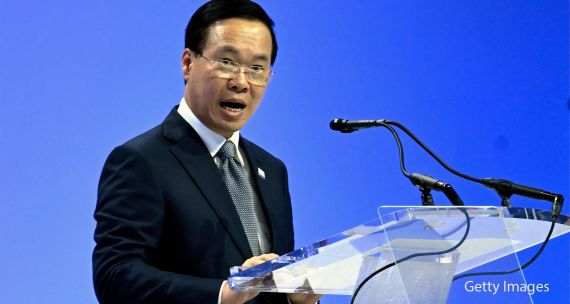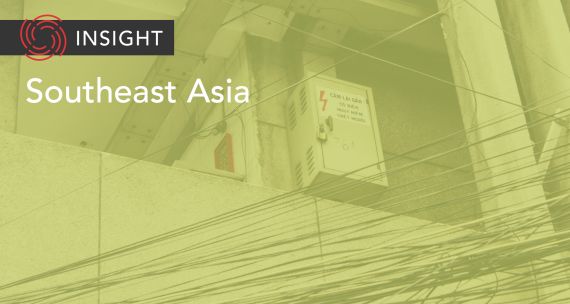The memory of the Vietnam War is still vivid in the minds of many from my generation and it will soon be brought back to life with the upcoming Ken Burns documentary by the same name. Canada played a key role during the war as a member – along with India and Poland – of the International Control Commission. After the war, Canada accepted 60,000 refugees (1979-80), opened an embassy in Hanoi (1994) and a consulate-general in Ho Chi Minh City (1997).
My first experience with Vietnam was in 1994, when I travelled frequently to help establish our new embassy and to open our trade office in Ho Chi Minh City, or Saigon as most people then called the bustling, still U.S.-influenced city. In 1994, Vietnam was firmly in the period of Doi Moi, Vietnam's equivalent of China's series of economic reforms to produce a "socialist-oriented market economy."
Since then, Vietnam has become Canada's 11th-largest source country for international students (2011) and developed a bilateral trade relationship that is worth $5.5-billion annually (2016). With its extraordinary economic growth, increasingly liberalized economy, commitment to global engagement and integration, its membership in la Francophonie and large diaspora, Vietnam is and will become more so, a key collaborator in the Association of Southeast Asian Nations (ASEAN) and Asia-Pacific Economic Co-operation (APEC).
Vietnam's GDP growth rate last year was 6.2 per cent, more than four times higher than Canada's. It has recently connected 43.7 million of its citizens to the Internet, the great socio-economic equalizer of the digital age. The middle class is burgeoning and a well-developed ecosystem of incubators and accelerators is the envy of the region. In fact, the explosive success of Vietnam's startup community has generated a "reverse brain-drain," with young Vietnamese entrepreneurs returning home from abroad to establish or work in startups, bringing with them new knowledge and skills that will invigorate Vietnam's economy for years to come.
With the Trans-Pacific Partnership/TPP-11 redux in disarray and a chill of protectionism gripping much of the globe, the time is now for Canada's deeper engagement with Vietnam and, by extension, its APEC and ASEAN partners. Our common ground is micro, small and medium enterprises (MSME) that are the engines of growth and innovation in the APEC region, including in Canada.
Vietnam has some 600,000 registered MSMEs, a number that is growing at more than 100,000 annually. Approximately 14,500 new MSMEs were established in the first two months of 2017 alone; the registered capital of these newly established firms was roughly $8.2-billion.
Canada has a unique opportunity to leverage its established expertise in technological innovation, entrepreneurship and green development to strengthen these MSMEs in Vietnam, and the larger APEC region. The APEC-Canada Growing Business Partnership project is a demonstration of Canada's commitment to engagement in the MSME space. The four-year project is designed to build and grow the MSME community in the APEC region. Funded by Global Affairs Canada and managed by the Asia Pacific Foundation of Canada and the APEC Secretariat, the program is now nearing the end of its first year, with a focus on Vietnam.
There is also an opportunity to connect Canadian businesses with new and like-minded partners in APEC economies such as Vietnam, where Canadian companies will find opportunities in sectors such as agri-food, education and training, information and communication technologies (ICT), clean tech and financial technology, as well as other services.
Canada's brand in Vietnam is positive and has become better with current global realities. Helping Vietnam build its MSME sector will provide strategic advantages in our engagement; if we are smart, we will engage at an early stage with the Vietnamese startup community, providing mentorship and technological help. We should also collaborate on e-commerce development and real-time, virtual education and training, not just for Vietnam's benefit but for our own.
For my generation, it is sometimes hard to shake the images of U.S. helicopters, soldiers and the Viet Cong. Vietnam has moved well beyond the devastation of the war years and is a ready and willing partner for Canada.
This piece first appeared in The Globe and Mail on September 14, 2017.



